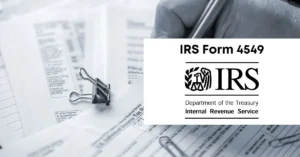We all know what Benjamin Franklin said about the certainty of taxes, but sometimes that certainty can fall by the wayside in the busyness of life. This can lead to complications later down the line and stir up issues with the IRS. If you’ve accrued any kind of tax debt and need a qualified tax attorney in Austin, TX, call us at the Silver Tax Group. We are dedicated to providing our clients with the specialist help that they need to take on the IRS.
Can a Tax Attorney Negotiate a Settlement with the IRS on My Behalf?
Yes, this is something that a tax attorney in Austin, TX can certainly do. Our tax attorneys are trained and experienced in tax law and have the expertise to handle negotiations with the IRS effectively. We can represent you in discussions with the IRS, present your case, and negotiate a settlement.
This could include options such as an offer in compromise, installment agreements, or penalty abatement. Having a tax attorney represent you can help make the steps of the legal process much less stressful, as well as ensuring that you achieve the best possible outcome in your dealings with the IRS.
What Steps Will a Tax Attorney Take in Negotiating With the IRS?
Assessment of Tax Liability
Your tax attorney will start by reviewing your tax situation, including any outstanding tax liabilities, penalties, and interest owed to the IRS. They will gather relevant documentation and information to understand the full scope of your tax issues.
Analysis of Options
Based on their assessment, your tax attorney will evaluate various options available for resolving your tax debt, such as an offer in compromise, installment agreement, penalty abatement, or other settlement arrangements. They will discuss the processes and potential outcomes with you so that you understand what your options are.
Communication with the IRS
Your tax attorney then will initiate communication with the IRS on your behalf. They will correspond with the IRS agent assigned to your case, submit necessary paperwork, and negotiate terms of the settlement. They will also prepare and present compelling arguments to support your case. This may include highlighting mitigating circumstances, demonstrating financial hardship, or pointing out errors or discrepancies in the IRS’s assessment of your tax liability.
Negotiation of Settlement
The IRS and your attorney will negotiate to reach a mutually acceptable settlement arrangement. This may involve proposing a reduced amount for payment, negotiating the terms of an installment agreement, or requesting the waiver of penalties and interest.
Resolution and Implementation
Once a settlement agreement is reached, your attorney will ensure that all necessary paperwork is completed and submitted to the IRS. They will oversee the implementation of the settlement terms and ensure compliance with any ongoing obligations, such as making scheduled payments or filing required tax returns.
Follow-Up and Monitoring
After the settlement is finalized, your tax attorney will continue to monitor your tax situation and address any issues that may arise. They can help you to maintain compliance with tax laws and prevent any future tax problems.
Throughout the negotiation process, the tax attorney will advocate for your interests and work diligently to achieve the best possible outcome for your tax situation.
What Options May a Tax Attorney Be Able To Negotiate on My Behalf?
A tax attorney can negotiate various options with the IRS on your behalf, depending on your specific tax situation and financial circumstances. Some of the options that a tax attorney may be able to negotiate include:
Offer in Compromise (OIC)
An offer in compromise allows you to settle your tax debt with the IRS for less than the full amount owed. We can help you determine if you qualify for an OIC and assist in preparing and submitting the necessary paperwork to negotiate a favorable settlement.
Installment Agreement
An installment agreement allows you to pay off your tax debt over time in monthly installments. A tax attorney can negotiate the terms of an installment agreement with the IRS on your behalf, including the amount of monthly payments and the duration of the repayment plan.
Penalty Abatement
Penalty abatement involves requesting the removal or reduction of penalties assessed by the IRS for late payment, failure to file, or other reasons. A tax attorney can advocate for penalty abatement based on reasonable cause, such as financial hardship, medical issues, or other extenuating circumstances.
Currently Not Collectible (CNC) Status
If you are unable to pay your tax debt due to financial hardship, a tax attorney can negotiate for currently not collectible status with the IRS. Gaining this status temporarily suspends collection efforts while you are unable to pay, giving you time to improve your financial situation.
Innocent Spouse Relief
If you are facing tax liability due to errors or omissions on a joint tax return filed with your spouse, a tax attorney can negotiate for innocent spouse relief. This relieves you of responsibility for the tax debt if you can demonstrate that you were unaware of the errors or did not benefit from the underreported income.
Audit Reconsideration
If you disagree with the results of an IRS audit, a tax attorney can negotiate for audit reconsideration. This involves presenting additional evidence or arguments to the IRS to challenge the audit findings and potentially reduce your tax liability.
Negotiated Settlements
In some cases, a tax attorney may be able to negotiate other types of settlements or compromises with the IRS based on your unique circumstances and the specific issues involved in your tax case.
Overall, a tax attorney can explore various options for resolving your tax debt and negotiate with the IRS to achieve the best possible outcome for your financial situation.
What If I Just Don’t Want To Pay It?
Let’s be clear: the above situations are for those who do not have the financial means to pay their tax debt, those for whom doing so would lead to undue hardship, and those who have other mitigating circumstances. The IRS will not reduce the debt of anyone who has the financial means to pay their tax debt and simply does not want to, for whatever reason. Additionally, choosing not to pay your tax debt can lead to serious consequences with the IRS.
The IRS has many powers to recover your debt and may take steps such as filing liens against your property, garnishing your wages, levying your bank accounts, and seizing your assets. They can also add penalties to your unpaid tax debt, and in extreme cases may pursue legal action against you and even criminal charges. It is much better to speak with us before you get to that point so that one of our tax attorneys can help ensure a more favorable outcome for your case.
Get in Touch With a Tax Attorney in Austin, TX
It’s important to address your tax obligations promptly and work with the IRS to resolve any outstanding issues to avoid escalating penalties and enforcement actions. If you’re experiencing financial hardship or have concerns about your ability to pay your tax debt, get in touch with us at Silver Tax Group, to explore your options with the guidance of a qualified tax attorney.





